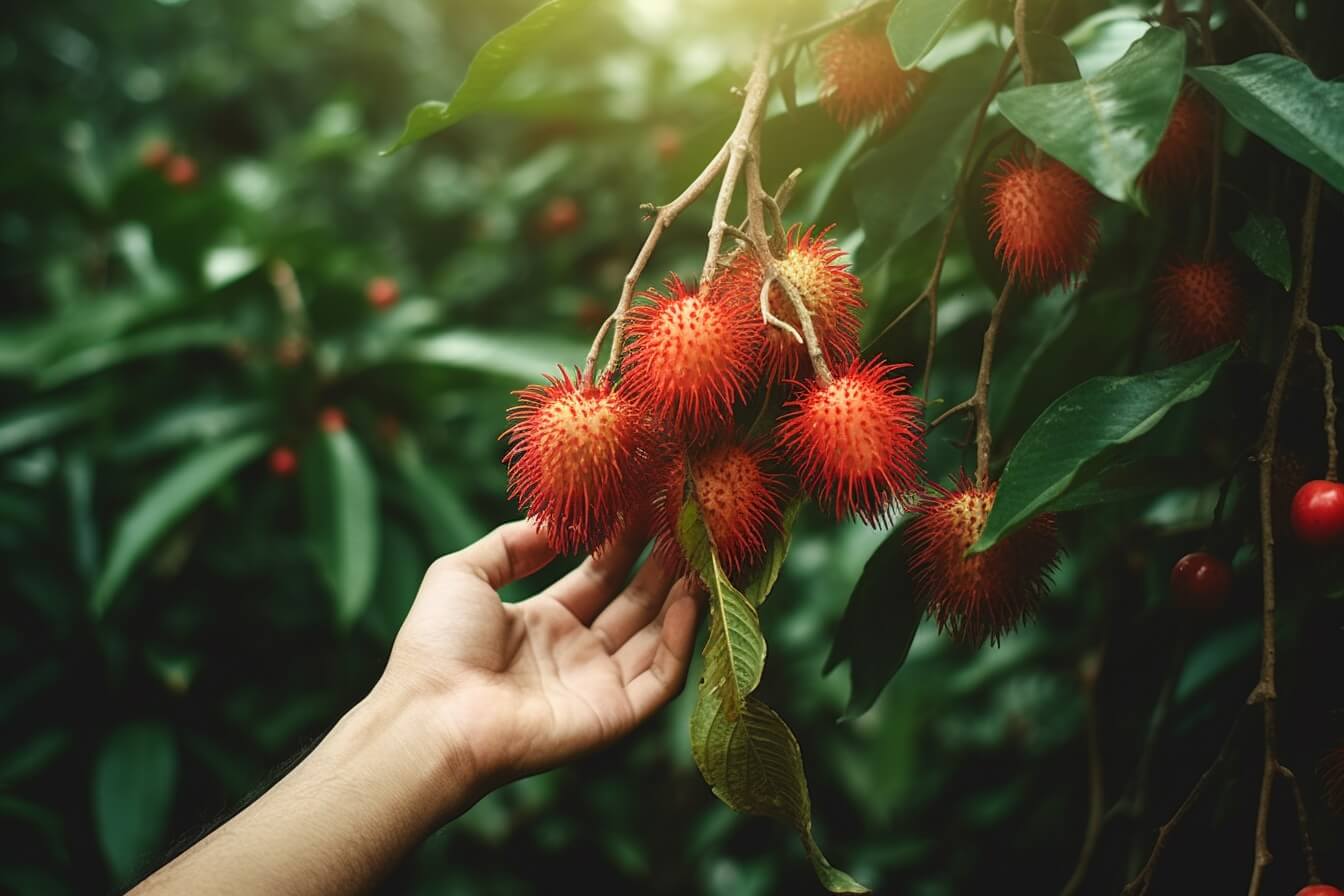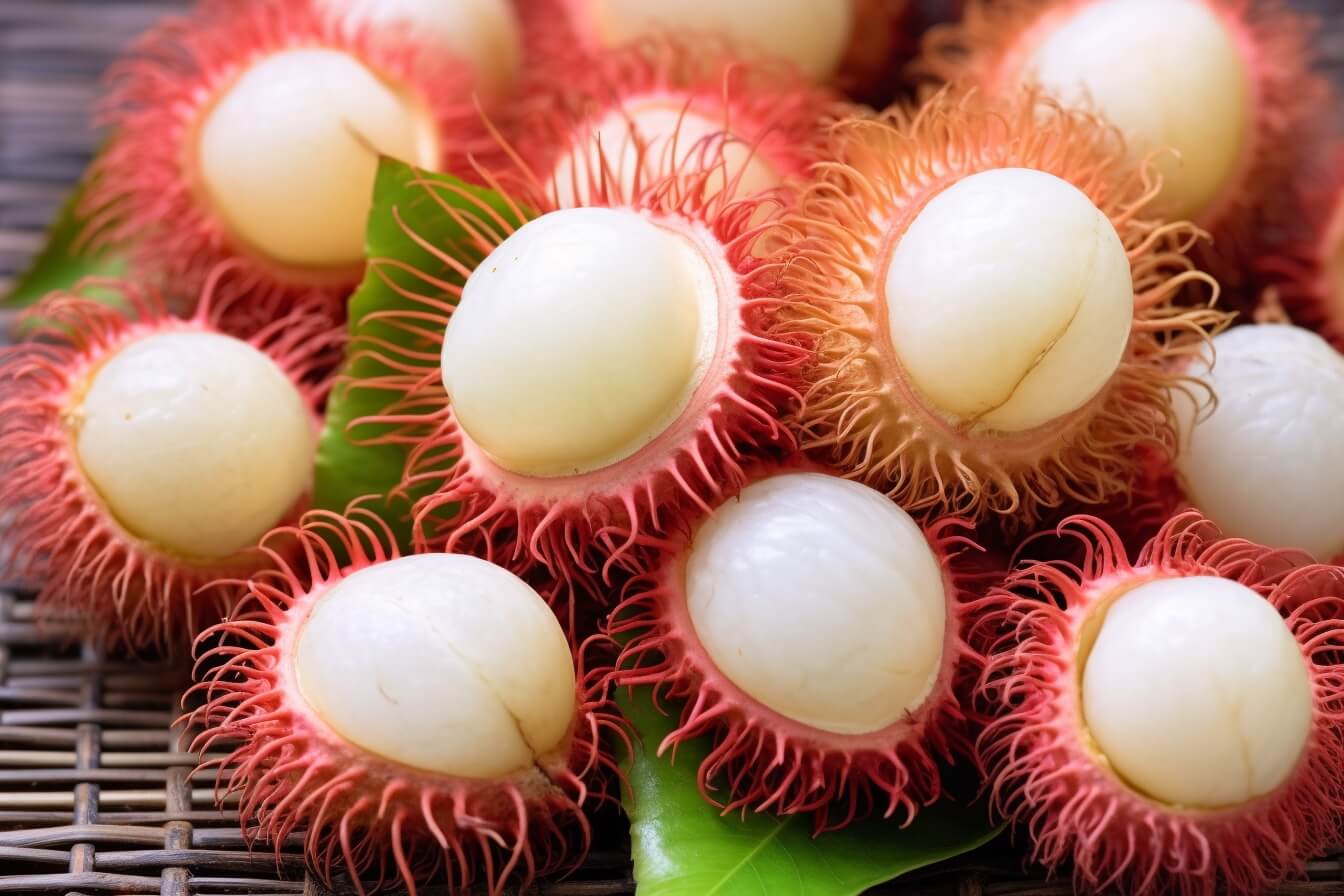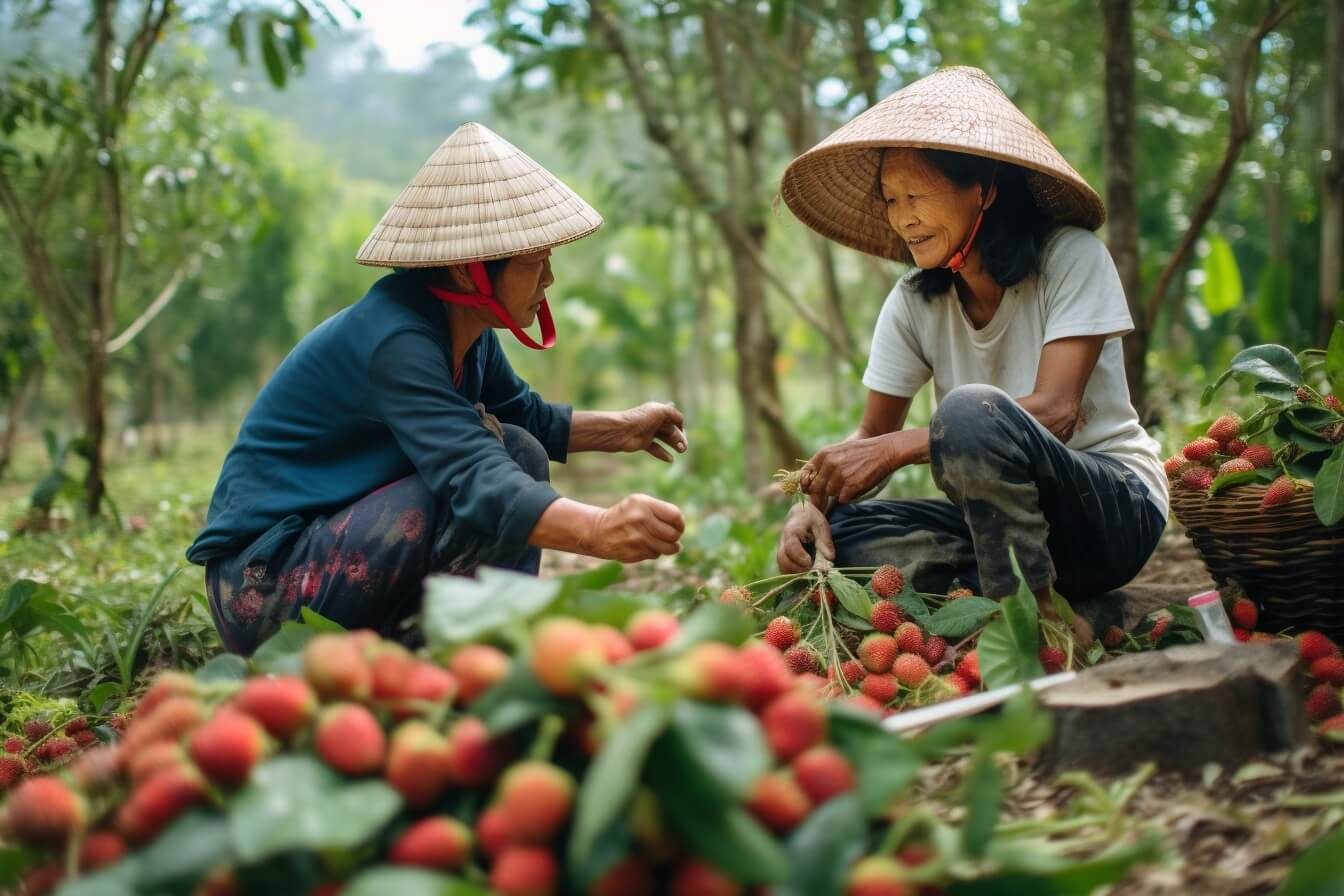As a lover of exotic fruit, I was excited to try rambutan (Nephelium lappaceum L) for the first time. With its spiky exterior and sweet, juicy flesh, it was everything I had hoped for. However, my excitement quickly turned to panic when I accidentally bit down on a seed.
Was it poisonous? Would I experience any adverse effects? These were the questions that raced through my mind as I anxiously waited for answers. Spoiler: no, eating one rambutan seed didn’t make me sick. The flavor of the seed is mild, but the texture is not as pleasant as rambutan flesh in my opinion.
Whether you’re a fan of rambutan or simply curious about its often-overlooked seeds, read on to learn more about this fascinating fruit.
Key Takeaways:
- Rambutan seeds are edible but can be toxic if eaten raw, so caution should be exercised when consuming them.
- Roasting rambutan seeds is a safe and easy way to make them edible, and they taste similar to roasted almonds.
- Rambutan seeds have potential health benefits, including reducing blood pressure and increasing good cholesterol levels.
- Fermenting and roasting rambutan seeds can enhance their antioxidant activity, making them even more nutritious.

Are Rambutan Seeds Safe To Consume?
While the flesh of the fruit is edible and nutritious, the seed should not be consumed raw as it contains toxins and anti-nutrients that can cause adverse effects, according to a 1987 publication (Fruits of Warm Climates by Morton, et al.)
In particular, 100 g of rambutan seeds contain up to 18.96 mg of natural pesticide saponin and up to 26.68 mg of tannin, as reported by International Journal of Food Properties in 2018. For comparison, 100 g of raw quinoa contains about 1 g of saponin, which is almost 40 times more, according to 2020 study in the journal Molecules.
Side effects of saponin consumption include gastrointestinal irritation (Toxicon, 2021) and growth depression, according to Food Research International article published in 1994. Rambutan seeds are also reported to have narcotic effects due to presence of alkaloids (Indonesian biodiversity strategy and action plan 2015-2020, 2016).
According to 2013 study by Oriental Pharmacy and Experimental Medicine, the lethal dose of saponin is 2,500 mg per kg of body weight. However, severe saponin poisoning in humans is extremely rare, so eating a few rambutan seeds is unlikely to cause you any harm.

How To Roast Rambutan Seeds
While there have been no reported cases of acute toxicity from consuming rambutan seeds, it’s better to err on the side of caution. Luckily, roasted rambutan seeds are safe for human consumption and can even offer health benefits, according to Bioresource Technology, 2010.
Roasting rambutan seeds will enhance their antioxidant activity and make them taste like roasted almonds. In fact, rambutan seeds are a good source of fats, protein, and essential fatty acids, making them a healthy snack option when prepared properly. However, it’s important to be careful when roasting rambutan seeds to avoid burning them.
- To roast rambutan seeds, start by carefully washing them and patting them dry.
- Preheat your oven to 150 degrees Celsius (302 °F) and spread the seeds out evenly on a baking sheet.
- Roast the seeds for 20-30 minutes, stirring them occasionally to ensure they are evenly roasted and not burnt.
- Once they have a golden brown color and a slightly crunchy texture, they are ready to be removed from the oven.
- To add flavor, sprinkle them with your choice of herbs or spices such as garlic powder or a pinch of sea salt.
Roasting rambutan seeds is an easy and delicious way to take advantage of their nutritional benefits. However, for an even greater antioxidant boost, consider fermenting the seeds before roasting (International Journal on Advanced Science Engineering and Information Technology, 2017).
There is no need to wash or remove leftover fruit pulp from rambutan seeds before fermentation. Simply wrap them in banana leaves and put inside a container – researchers used small plastic baskets (625 mm × 425 mm × 294 mm). Allow at least 6 days of fermentation and stir the seeds every 3 days, but make sure there is no mold growth.
After sufficient fermentation, roast rambutan seeds at around 150 degrees Celsius (302 °F) for 30 minutes. The additional benefit of fermentation is it removes up to 73% of tannins and up to 92% of saponins (Food Production, Processing and Nutrition, 2020).

Benefits Of Eating Rambutan Seeds
Moving on to rambutan seed benefits, it’s important to note that they are a good source of protein, iron, calcium, magnesium, potassium, and vitamins C and A. Additionally, they reduce the risk of developing ulcerative colitis and can be used as a supplement for bodybuilders (J Int Soc Sports Nutr, 2007).
Rambutan seeds are also a great source of essential fatty acids such as oleic acid (40.3%) and arachidonic acid (34.5%), which are known to have various health benefits. These fatty acids improve anaerobic capacity, reduce inflammation, and increase good cholesterol levels (Proc Natl Acad Sci U S A, 2008).
Additionally, rambutan seeds contain bioactive compounds such as geraniin, ellagic acid, and corilagin, which contribute to their antioxidant and anticancer activities (International Journal on Advanced Science Engineering and Information Technology, 2017).
According to International Food Research Journal, the nutritional value of rambutan seeds is as follows:
| Nutrient | Quantity per 100 g |
|---|---|
| Protein | 9.1 g |
| Fat | 6.8 g |
| Calcium | 9.58 mg |
| Magnesium | 12.3 mg |
| Phosphorus | 16.6 mg |
| Iron | 0.34 mg |
| Zinc | 0.17 mg |
| Vitamin C | 59.4 mg |
| Vitamin A | < 40 IU |
The nutritional profile varies for different cultivars. According to International Journal of Food Properties, 100 g of rambutan seeds contain up to 12.4 g of protein and up to 38.9 g of fat. It is also a significant source of carbohydrates (48.1 g).
